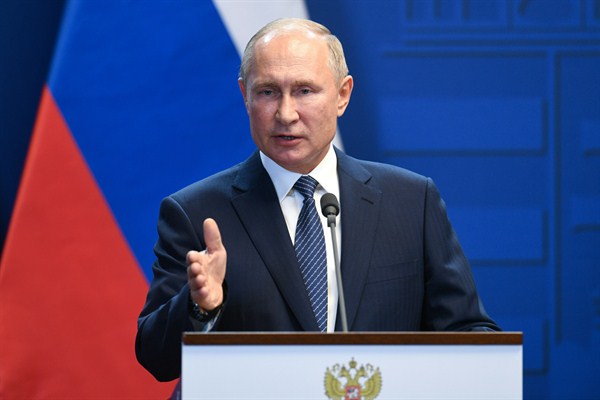Russia is launching one of the boldest experiments in the recent history of the internet, but perhaps not in the way it thinks. On Nov. 1, a strict new law meant to impose Russia’s own version of China’s “great firewall”—the autocratic gold standard for state control of cyberspace—officially takes effect. While the law’s details are sketchy, it aims to cut off Russia’s connections to the World Wide Web and replace them with its own tightly controlled “domestic internet.”
Whether or not the Kremlin knows it, when the history of 21st-century cyberwars are written, this move could be seen in retrospect as the cyber equivalent of France’s Maginot Line. A faulty strategy nominally designed to deter U.S. cyberattacks on Russian data infrastructure, it may instead incentivize the U.S. to develop more sophisticated cyber capabilities, increasing the risk of escalatory dynamics. Trying to isolate Russia from global information flows could also trigger more waves of domestic protest against internet censorship, while interfering with commerce and perhaps even leading to major disruptions of transportation systems and other types of critical infrastructure. In effect, rather than strengthen the Kremlin’s grip on power, Russia’s new internet law may further expose the brittle political and economic structure Putin has erected since coming to power nearly 20 years ago.
In addition to banning the use of virtual private networks and proxy servers to access the internet, the law sets in motion the establishment of an entirely new standalone domain name system, or DNS, for Russia—“RuNet”—that will in theory drive all internet traffic seeking to connect with Russian websites through government-controlled entry points. Roskomnadzor, Russia’s telecommunications oversight agency, is set to conduct a test disconnection of RuNet from the global internet sometime between now and April 1, which is the cut-off date for adding any amendments to the law.

